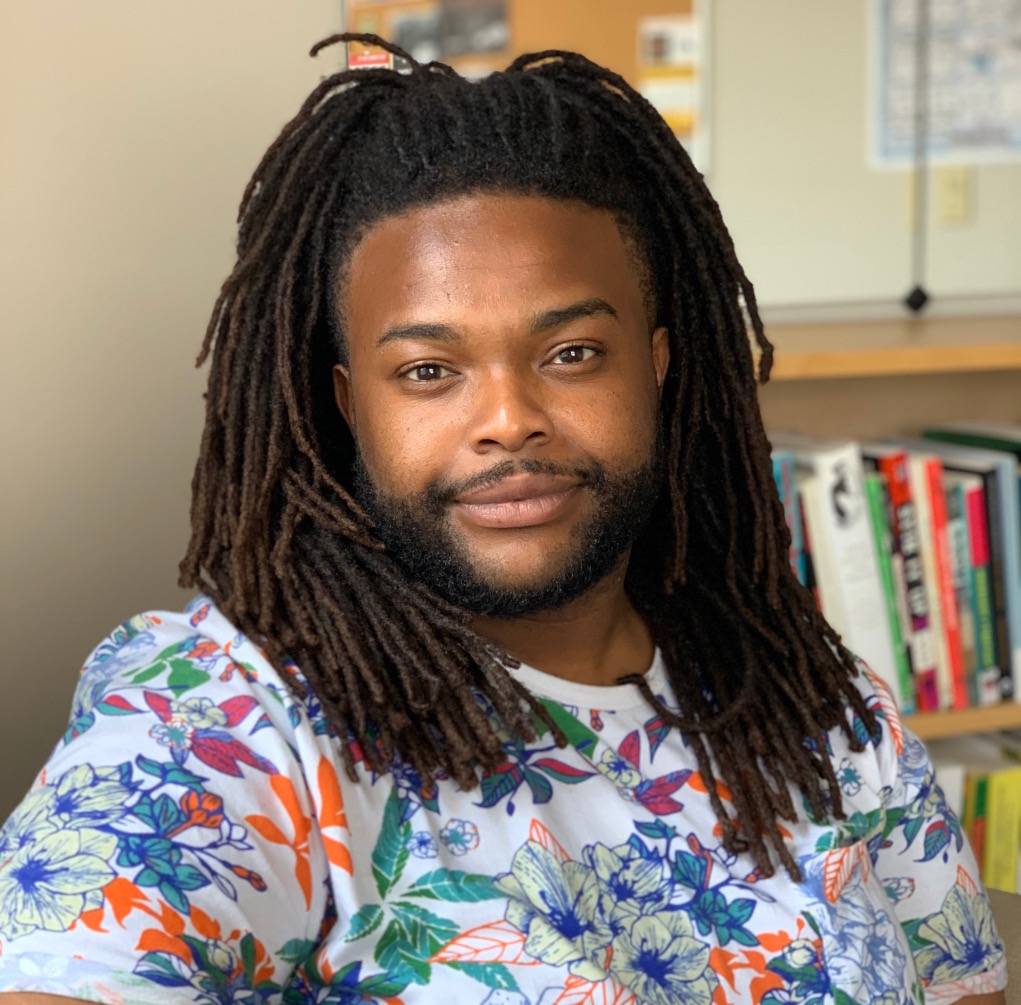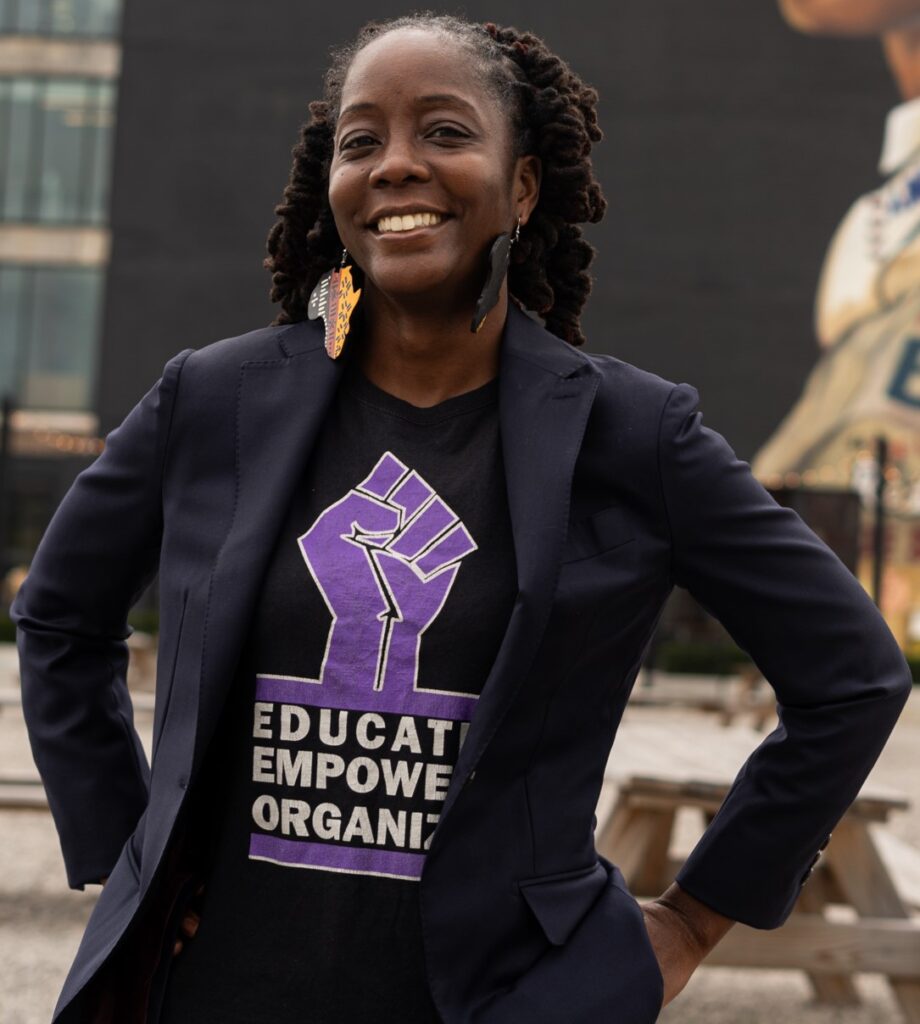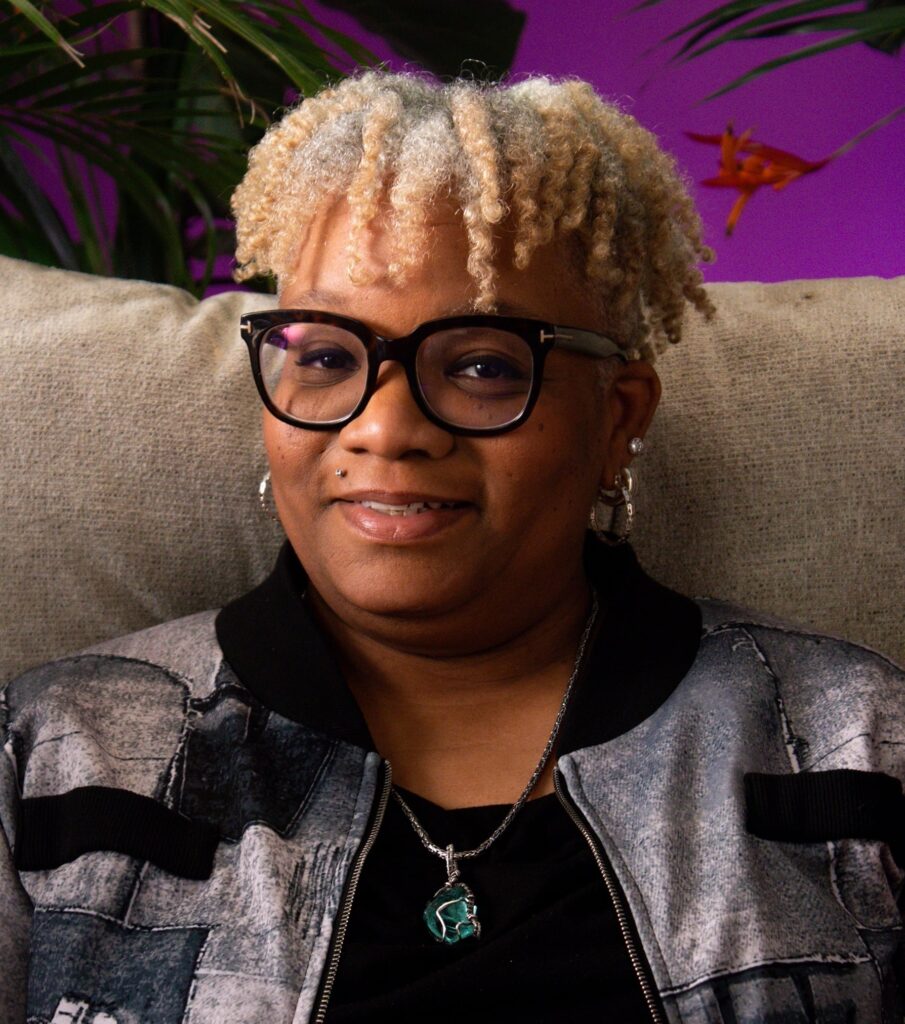Roundtable Discussion, VCAM Screening Room
Wednesday, April 17, 4:30pm
The roundtable will be a discussion between visionary leaders who have been organizing around true methods of community safety and alternatives to mass surveillance in their respective communities.
Panelists

Devren Washington, Organizing Director, People’s Tech Project
In his role at People’s Tech Project as the Organizing Director, Devren (they/he) collaborates with local organizations to build a strategy for liberation based on an intersectional analysis of how technology aggravates their core fights, and identifies opportunities to build power among Philly’s left movement ecosystem.
During their time with Movement Alliance Project, Devren launched Philly Tech Justice, which successfully pressured the City of Philadelphia to create a Digital Equity Plan to connect offline city residents, and the PHLConnectED program, which has connected over 35,000 students to broadband since 2020. He has also led key pieces of work fighting against surveillance and for renewed and continued investment in local marginalized communities.

Nancy Parker, Executive Director, Detroit Justice Center
Nancy is the Executive Director of the Detroit Justice Center, an abolitionist legal services organization working alongside communities to create economic opportunities, transform the legal system, and promote equitable and just cities. Nancy previously served as the Managing Attorney of the Movement Lawyering Practice, where she focused on providing legal support to grassroots organizations fighting for racial justice in the city and surrounding communities. Nancy was proudly part of the dedicated legal team that successfully sued the City of Detroit and its police for the unconstitutional civil rights violations that were exacted upon nonviolent protesters fighting for Black lives and police accountability. Nancy also worked in coalition with community partners to organize around ending the city’s use of the expensive and inefficient surveillance technology, ShotSpotter. Nancy has engaged in direct representation of clients in various courts, conducted know-your- rights trainings, presented on prison industrial complex abolition, provided research/analysis, and generally provided any other support needed to move abolitionist campaigns and projects forward.
Nancy earned her B.A. from the University of Michigan where she majored in Sociology and minored in African-American and African Studies. She graduated from Washington University in St. Louis, School of Law in 2011. While in law school, Nancy served as a student attorney in the Civil Justice Clinic–Youth and Family Advocacy Project, representing youth in juvenile justice and child welfare matters. As a law student, she argued before the Eighth Circuit Court of Appeals resulting in her client’s restoration of custodial rights.
When Nancy is not zealously advocating for justice, you can find her running after her two little kiddos; playing basketball with her partner; or listening to Nina Simone.

Hamid Khan, Organizer, Stop LAPD Spying Coalition
Hamid Khan is an organizer with the Stop LAPD Spying Coalition. The mission of the coalition is to build community-based power to dismantle police surveillance, spying, and infiltration programs. The coalition utilizes multiple campaigns to advance an innovative organizing model that is Los Angeles-based but has implications regionally, nationally, and internationally.

Chris Gilliard, Just Tech Fellow, Social Science Research Council
Dr. Chris Gilliard is a writer, professor, and speaker. His scholarship concentrates on digital privacy, surveillance, and the intersections of race, class, and technology. He is an advocate for critical and equity-focused approaches to tech in education. His writings have been featured in the New York Times, the Washington Post, Wired Magazine, the Chronicle of Higher Ed, and Vice Magazine. He is a Visiting Research Fellow at the Harvard Kennedy School Shorenstein Center, a member of the UCLA Center for Critical Internet Inquiry Scholars Council, and a member of the Surveillance Technology Oversight Project community advisory board.
Gilliard is a member of the inaugural (2022 – 2024) cohort of the Just Tech Fellowship. As a Just Tech Fellow, Gilliard will create a taxonomy for identifying and assessing the social impact and risk of novel surveillance technologies to marginalized communities. Through interviews with impacted communities and consultation with a diverse group of experts, Gilliard will classify automated and data-driven technologies according to the information they collect and store, the human sources of these data, and the data management protocols employed in design, creation, and deployment. Gilliard’s taxonomy of surveillance will help a diverse group of stakeholders better understand the disproportionate privacy impact of data-driven technologies and create opportunities and spaces of intervention for activists, policymakers, academics, and technologists.

Tawana Petty, Founding Executive Director, Petty Propolis
Tawana Petty is a mother, social justice organizer, poet, author, and facilitator. Her work focuses on racial justice, equity, privacy, and consent. She is a 2023-2025 Just Tech Fellow with the Social Science Research Council, a 2024 National LIO Yearlong Fellow with the Rockwood Leadership Institute and she serves on the CS for Detroit Steering Committee. Petty also serves on the board of Signal-Return.
She is an alumni fellow of the Digital Civil Society Lab at Stanford PACS, the Detroit Equity Action Lab, and Art Matters Foundation, and was a convening member of the Detroit Digital Justice Coalition from 2016 through 2024. Petty currently serves as the founding Executive Director of Petty Propolis, a Black women-led artist incubator primarily focused on cultivating visionary resistance through policy literacy and advocacy, data and digital privacy education, and racial justice and equity initiatives.
She is a former co-lead of Our Data Bodies and has previously served as Data Justice Director for the Detroit Community Technology Project, National Organizing Director at Data for Black Lives and Director of Policy and Advocacy for the Algorithmic Justice League.
Petty has been honored with several awards. Selected honors include a Certificate of Special Congressional Recognition and Wayne State University’s Center for Peace and Conflict Studies Peacemaker Award in 2018. In 2021, she was named one of 100 Brilliant Women in AI Ethics, and in 2023, Petty was honored with the AI Policy Leader in Civil Society Award by the Center for AI and Digital Policy.
Observed: Hypervisibility and Reclamation is organized in conjunction with the Hurford Center’s 2023-24 Faculty Seminar, “Technology & Justice: Mediating Communities,” led by Sorelle Friedler and Laura McGrane. The exhibition is made possible with support from The John B. Hurford ’60 Center for the Arts and Humanities and is co-funded by the Haverford College Initiative for Ethical Engagement and Leadership (IEEL)

